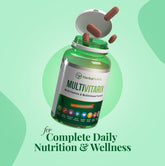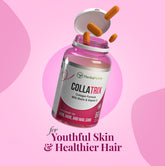Vitamin E: The Ultimate Skin Barrier Booster
Vitamin E: The Ultimate Skin Barrier Booster
Our skin is our first line of defense, a complex barrier that shields us from environmental aggressors. This crucial barrier, however, can become compromised due to various factors, leaving our skin vulnerable. That's where Vitamin E steps in, playing a vital role in fortifying and maintaining a healthy skin barrier.
Understanding the Skin Barrier
The skin barrier, also known as the stratum corneum, is the outermost layer of our skin. Its primary function is to:
- Retain Moisture: Preventing water loss and keeping the skin hydrated.
- Protect Against Irritants: Blocking harmful substances, pollutants, and bacteria.
- Maintain Skin Integrity: Ensuring the skin's structure and resilience.
When this barrier is weakened, it can lead to dryness, irritation, sensitivity, and increased susceptibility to infections.
Vitamin E's Role in Barrier Function
Vitamin E, a powerful fat-soluble antioxidant, significantly contributes to a robust skin barrier. Here's how:
-
Moisture Retention:
- Vitamin E acts as an emollient, helping to trap moisture within the skin. This prevents dryness and keeps the skin supple.
- By reinforcing the lipid barrier, it minimizes transepidermal water loss (TEWL), ensuring optimal hydration.
-
Antioxidant Protection:
- Environmental stressors like UV radiation and pollution generate free radicals, which can damage the skin barrier.
- Vitamin E neutralizes these free radicals, protecting the skin's cellular structure and preventing oxidative stress.
-
Barrier Repair:
- Vitamin E aids in the repair of damaged skin cells, promoting the regeneration of a healthy barrier.
- It helps to soothe irritated skin and reduce inflammation, further supporting barrier function.
Incorporating Vitamin E into Your Routine
To reap the skin barrier benefits of Vitamin E, consider these options:
-
Topical Application:
- Look for skincare products containing Vitamin E, such as moisturizers, serums, and oils.
- Ensure the product uses a stable form of Vitamin E, like tocopherol.
-
Dietary Intake:
- Consume foods rich in Vitamin E, including nuts, seeds, leafy greens, and vegetable oils.
- A balanced diet provides the body with essential nutrients for overall skin health.
Important Considerations:
- While Vitamin E is generally safe, perform a patch test before applying new products to avoid potential allergic reactions.
- Consult a dermatologist for personalized advice, especially if you have existing skin conditions.
- Vitamin E is not a replacement for sunscreen. Always use sunscreen.
By understanding the importance of the skin barrier and the role of Vitamin E, you can take proactive steps to maintain healthy, resilient skin.





